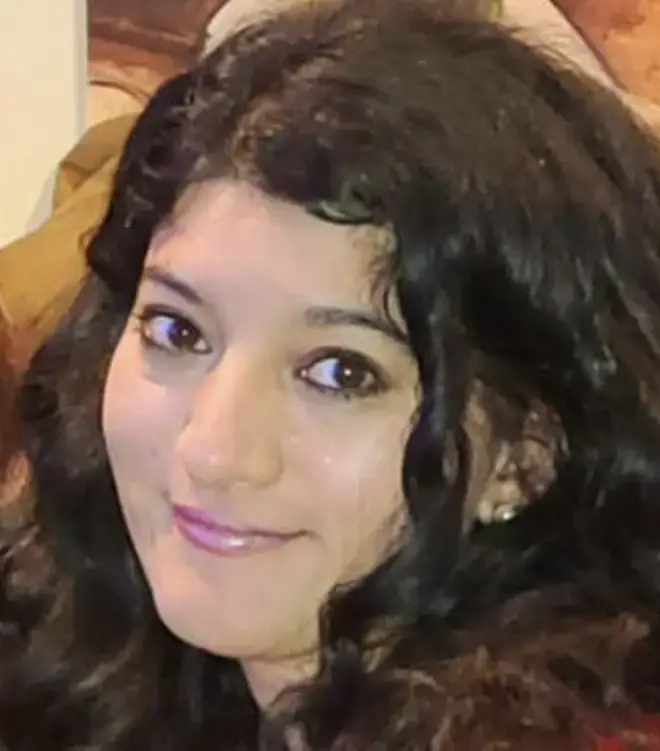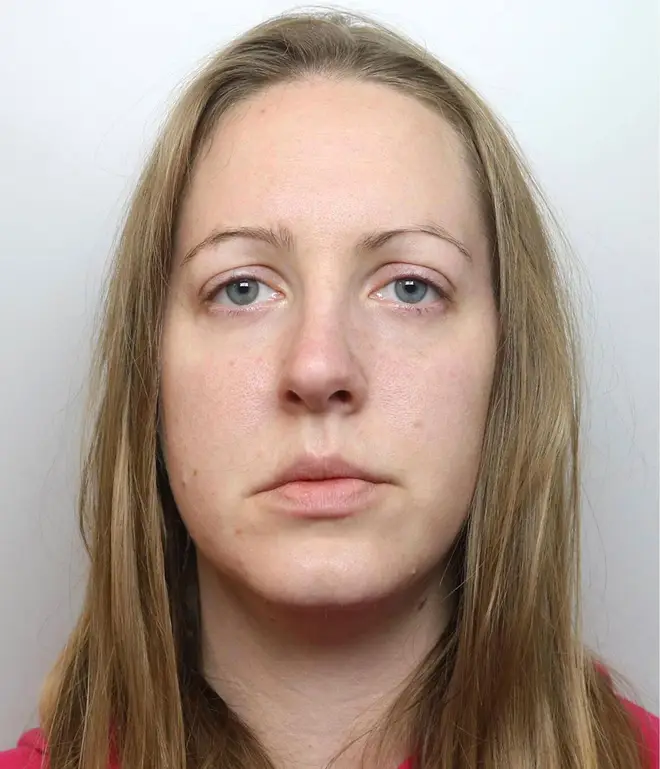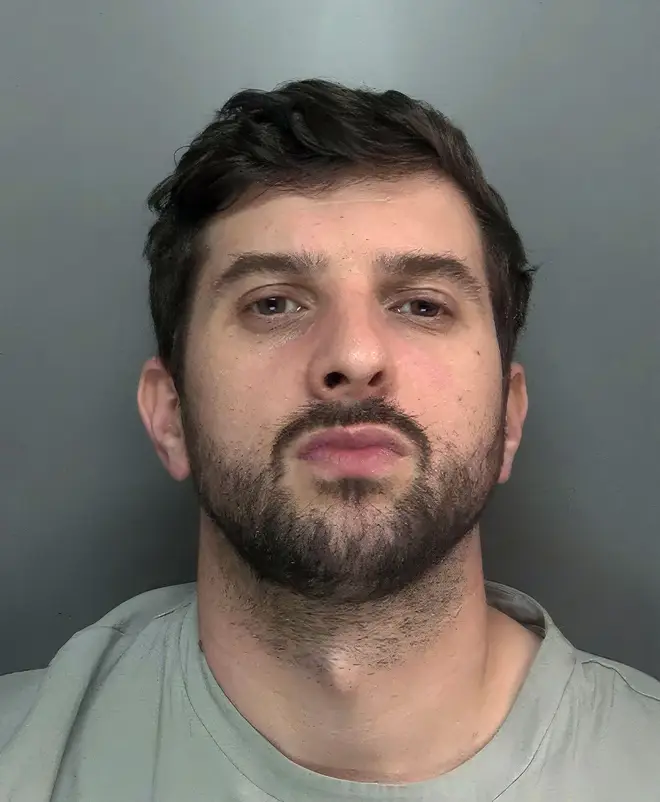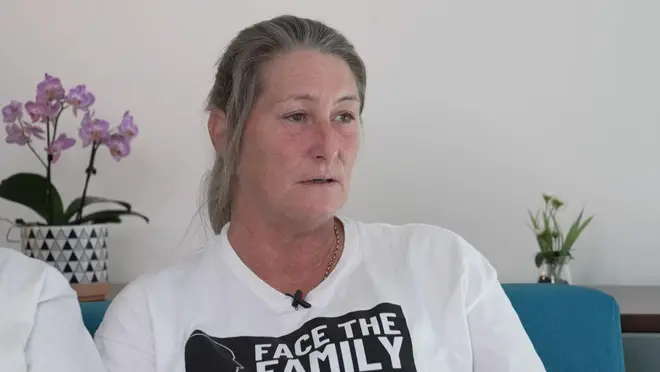
Matthew Wright 7am - 10am
30 August 2023, 22:51 | Updated: 31 August 2023, 01:02

Plans to make criminals attend their sentencing hearings in court are "complex and fraught with danger", the former prison officer father of a murdered police constable has warned.
Under a new power introduced on Wednesday, judges will be able to order offenders to go to their hearing, while custody officers will be able to use "reasonable force" to bring criminals to the dock.
Those who refuse face an extra two years in jail - but former prison officer Bryn Hughes, whose daughter PC Nicola Hughes was killed in the line of duty, said the plan could be easier said than done.
It comes after killer nurse Lucy Letby was too cowardly to appear in court to see herself get a whole life order.

She did not appear for her sentencing after being convicted of murdering seven babies and trying to kill six more.
Rishi Sunak said: "It is unacceptable that some of the country's most horrendous criminals have refused to face their victims in court.

"They cannot and should not be allowed to take the coward's way out.
"That's why we are giving judges the power to order vile offenders to attend their sentencing hearings, with those who refuse facing being forced into the dock or spending longer behind bars."
Justice secretary Alex Chalk said: "Every time a cowardly criminal hides from justice by refusing to appear in the dock for their sentencing it is another insult to their victims and their families.
Read more: 'Life means life': Government to expand whole-life prison sentences for most depraved killers

"Our reforms will give judges the power to order offenders to come to court to hear the impact of their crimes directly from victims, so that they begin their sentences with society's condemnation ringing in their ears."
But Mr Hughes, whose daughter was murdered in 2012 alongside fellow Pc Fiona Bone in a gun and grenade ambush, warned against a "knee-jerk, headline-grabbing" response.
"I have seen it from both sides of the courtroom," he said. "On being the father of someone who was murdered and being in court, and a former prison officer who has actually restrained someone into court, it is difficult," he told the PA news agency.

He said he had seen the behaviour of prisoners forced into courtrooms: "Foul abuse towards the family, abused the court, turned their back, kicked off, fought, spat, bitten people.
"They are beyond being told to sit down and be quiet, aren't they?
"If you are going to restrain them in court, is it going to involve a Hollywood-style Hannibal Lecter outfit?" he said, referencing a character from the 1991 film Silence Of The Lambs.
Mr Hughes warned it was often very difficult to force people up into courtrooms. "In reality it is complex and operationally it is fraught with danger," he said.
"I wouldn't want to see them dragged up into the dock shouting abuse about the final moments of your loved one."
Under the new plan, the two year extra jail term for those who refuse to come to the dock will be used for crimes where the maximum sentence is life imprisonment, such as murder, rape and GBH with intent.
Life in prison carries a minimum sentence that must be served before they can be considered for parole.
But the general secretary of the Prison Officers Association (POA) Steve Gillan said a new law is not needed as the powers "are already there".
He said: "Both political parties are trying to outdo each other on who can be tough on crime, because there's no need for legislation actually, and the reason there's no need for legislation is because the courts have got the power to tell a governor that he wants a prisoner produced in his court."

The Ministry of Justice said: "The change will mean victims can look offenders in the eye and tell them of the devastating consequences of their crime as they read out their impact statement, rather than addressing an empty dock."
During sentencing hearings, victim statements are often read out, setting out how the crime has upended their lives.
Letby is not the only criminal convicted of a serious offence to refuse to face their victims in court.
Thomas Cashman shot dead nine-year-old Olivia Pratt-Korbel in Liverpool last year and he refused to go too, meaning he avoided hearing how her murder had crushed her family.
Her mother, Cheryl Korbel, backed the Face the Families campaign in a bid to force criminals to face the music.
"The law needs to change. [Courts] need to have more power to bring these offenders up to the door and to face the families and listen to the impact statements," she said previously.
Jordan McSweeney refused to attend his sentencing over his sexual assault and murder of Zara Aleena in London.
Responding to the plans, Labour said the Conservatives had "dragged their feet" on the issue, accusing ministers of promising to act on four separate occasions over the last 18 months.
The Ministry of Justice said judges would have discretion over whether it is "in the interests of justice" to order an offender to attend court.
Chair of the Bar, Nick Vineall KC, said: "We welcome the Ministry of Justice's decision to leave it to judges to decide how to deal with individual cases in the interests of justice.
"Judges will use their discretion to guard against the danger of allowing a convicted defendant to disrupt sentencing hearings."
No exact date has been given for the legislation and it has been promised in "due course".